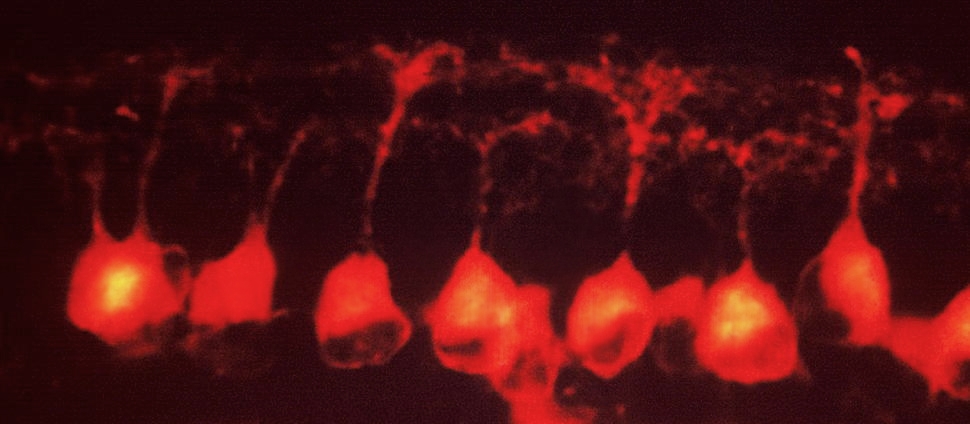Document Type
Article
Publication Date
5-1-2022
Publication Title
Experimental Neurology
Abstract
The adhesion G protein-coupled receptor BAI1/ADGRB1 plays an important role in suppressing angiogenesis, mediating phagocytosis, and acting as a brain tumor suppressor. BAI1 is also a critical regulator of dendritic spine and excitatory synapse development and interacts with several autism-relevant proteins. However, little is known about the relationship between altered BAI1 function and clinically relevant phenotypes. Therefore, we studied the effect of reduced expression of full length Bai1 on behavior, seizure susceptibility, and brain morphology in Adgrb1 mutant mice. We compared homozygous (Adgrb1−/−), heterozygous (Adgrb1+/−), and wild-type (WT) littermates using a battery of tests to assess social behavior, anxiety, repetitive behavior, locomotor function, and seizure susceptibility. We found that Adgrb1−/− mice showed significant social behavior deficits and increased vulnerability to seizures. Adgrb1−/− mice also showed delayed growth and reduced brain weight. Furthermore, reduced neuron density and increased apoptosis during brain development were observed in the hippocampus of Adgrb1−/− mice, while levels of astrogliosis and microgliosis were comparable to WT littermates. These results show that reduced levels of full length Bai1 is associated with a broader range of clinically relevant phenotypes than previously reported.
Keywords
Autism, BAI1, Epilepsy, GPCR, Seizures
Volume
351
DOI
10.1016/j.expneurol.2022.113994
ISSN
00144886
Version
Version of Record
Recommended Citation
Shiu, Fu Hung; Wong, Jennifer C.; Yamamoto, Takahiro; Lala, Trisha; Purcell, Ryan H.; Owino, Sharon; Zhu, Dan; Van Meir, Erwin G.; Hall, Randy A.; and Escayg, Andrew, "Mice Lacking Full Length Adgrb1 (bai1) Exhibit Social Deficits, Increased Seizure Susceptibility, and Altered Brain Development" (2022). Neuroscience: Faculty Publications, Smith College, Northampton, MA.
https://scholarworks.smith.edu/nsc_facpubs/51


